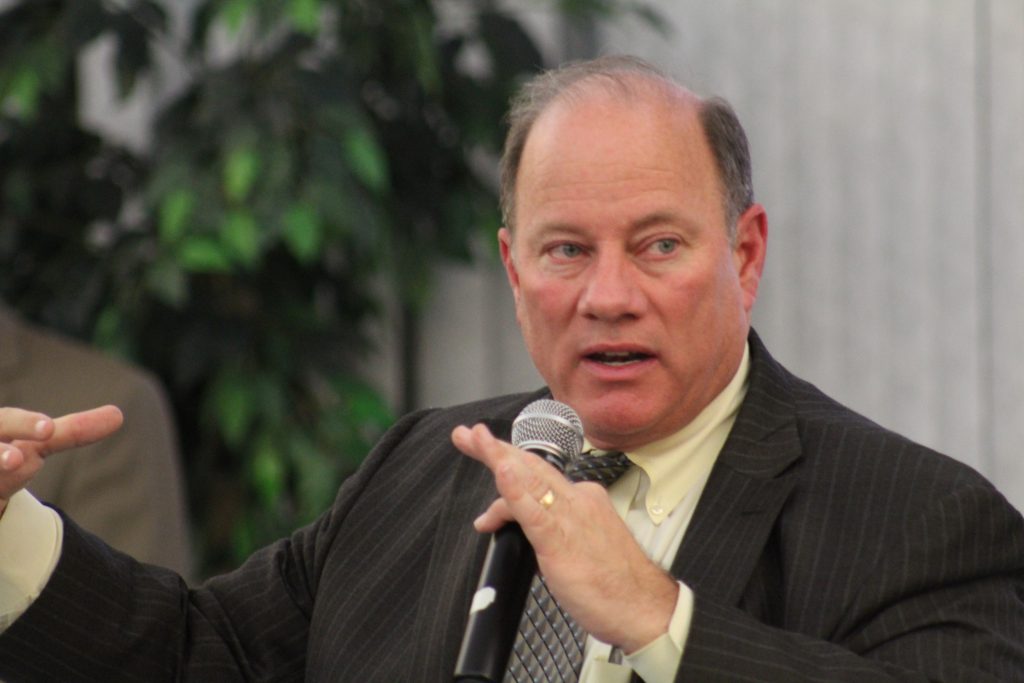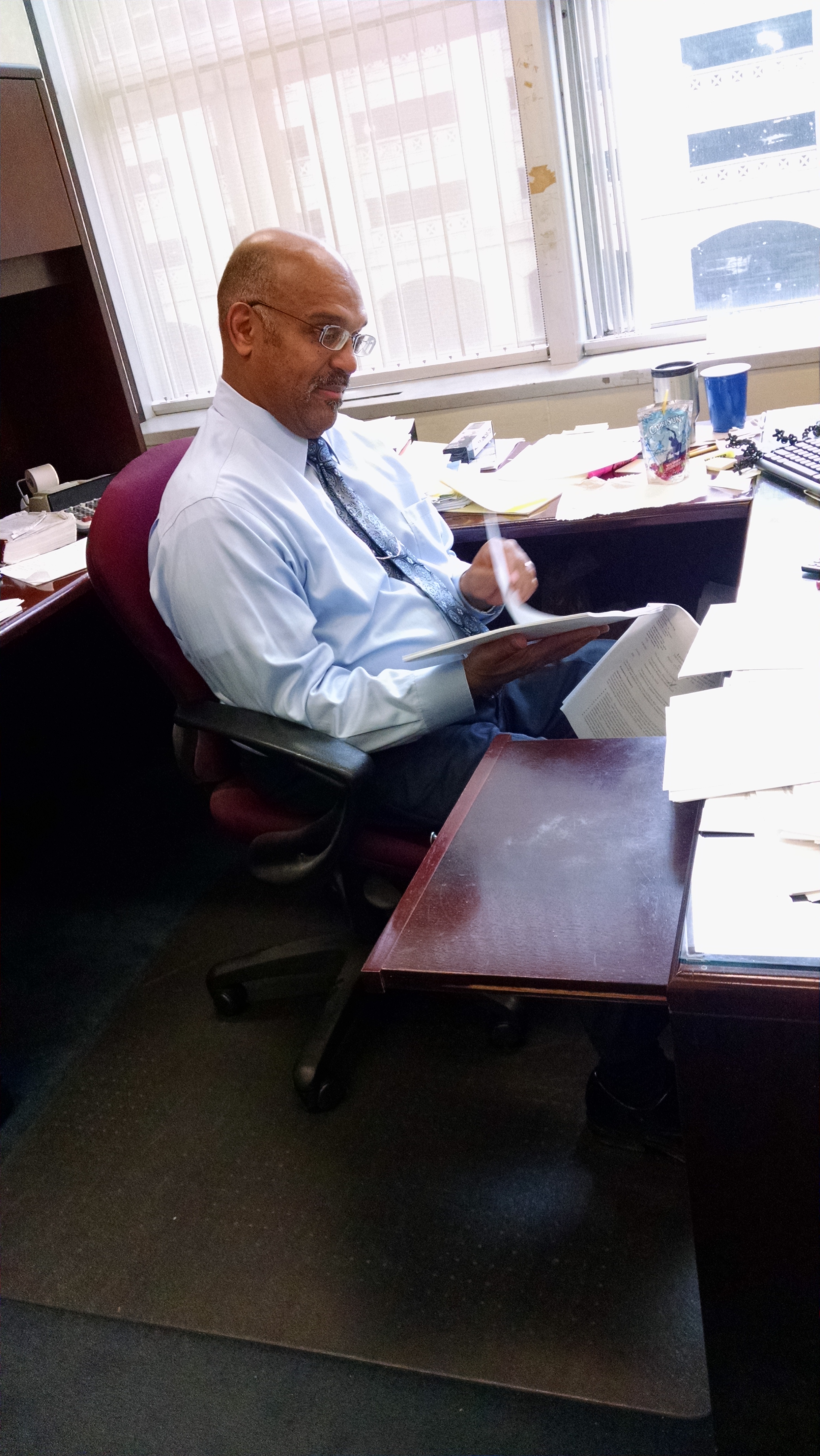City’s Finances, Leadership Culture Changed by Bankruptcy
With a financial plan in place — without deficits of the past — Detroit officials look forward.

Irvin Corley Jr. spent the past half-century providing an independent analysis of Detroit’s finances for the City Council.

The financial analyst says it was not a pleasant process in the years leading up to July 2013 bankruptcy filing. “Going through years where we had consecutive deficits, those were painful years. I’m doing my best to look past that time,” he says.
Corley was a canary in Detroit’s fiscal coal mine, pointing-out where mayoral budgets, especially those presented by the Kilpatrick Administration, just did not add up. City Council members often met Corley’s cautionary tales with a collective eye roll.
Corley says that does not happen anymore.
“The culture’s different,” he says. “It’s different now because we have a Plan of Adjustment that arose from the bankruptcy process. We have to follow that Plan of Adjustment. So you have oversight boards looking at that, you have creditors looking at that, you have investors looking at that. We now have to live within our means.”
Corley says the city expected to have about a $44 million surplus after exiting bankruptcy, but early projections show the actual surplus could be more than twice that amount when the official numbers are released, likely in March.
The city’s Plan of Adjustment calls for Detroit to have about $1.7 billion to rebuild with over the next 10 years through “Restructuring and Reinvestment Initiatives” that were part of the bankruptcy exit plan. But most of that money comes from savings through expected cost-cutting and projected increased efficiency.
Corley says if the financial projections, especially the estimated revenue from property taxes, are off by even $10 million, the city’s narrow fiscal margins would evaporate.
“That means that some adjustments would need to be made. We might need to cut back on some of the reinvestment and restructuring initiatives. Without any adjustments then yes, something beyond 10 million or so could blow the budget.”
It’s a razor-thin financial cushion.

But Mayor Mike Duggan says that’s nothing new for him. “I operated at the Detroit Medical Center for 9 years with a razor-thin financial cushion. I don’t know any other way,” Duggan says.
The former medical system CEO can quickly tick off a list of what he says he’s accomplished during his first years in the mayoral office: leveraging a combination of cost savings and federal funding to install thousands of new street lights; a full fleet of city buses on the streets; ensuring residents’ trash is picked up regularly.
Yet the mayor has faced questions over what some call the spiraling cost of tearing down thousands of blighted homes in the city and just how much response times have improved for Detroit’s emergency medical service.
Duggan acknowledges much work remains to be done.
“You know the biggest thing is we have to get more jobs in to this city. We have to cut car insurance, we got to deal with the schools,” he says. “Those things aren’t necessarily city government. But they certainly impact citizens’ lives every day and they’re things that we’re working very hard at.”
When Duggan took office in the midst of the bankruptcy proceedings he pledged to have a far more constructive relationship with the City Council than past mayoral administrations, and Duggan contends democracy was alive in Detroit, even before former Emergency Manager Kevyn Orr left town.
“For all practical purposes my administration was running the day-to-day services of the city even when he was here, with the exception of the police department,” Duggan says. “So I don’t know that (officially restoring authority to Detroit’s elected leadership) was that big a change. But you know there were people who thought the day Kevyn Orr left the mayor and the City Council would go back to fighting. And a year later I think you’re seeing a very cooperative and positive relationship. And I think most Detroiters are very pleased with that.”
That’s the feeling among some of the people picking their way through ongoing construction at Detroit’s Campus Martius park. Detroiter Paul Garrison nods at the rebuilding throughout the downtown business district and says he personally thanks those shepherding the city through Chapter 9 for helping spur the revitalization along.
“Bankruptcy in my perspective and opinion was 10 years overdue,” he said. “But fortunately it did finally take place.”

